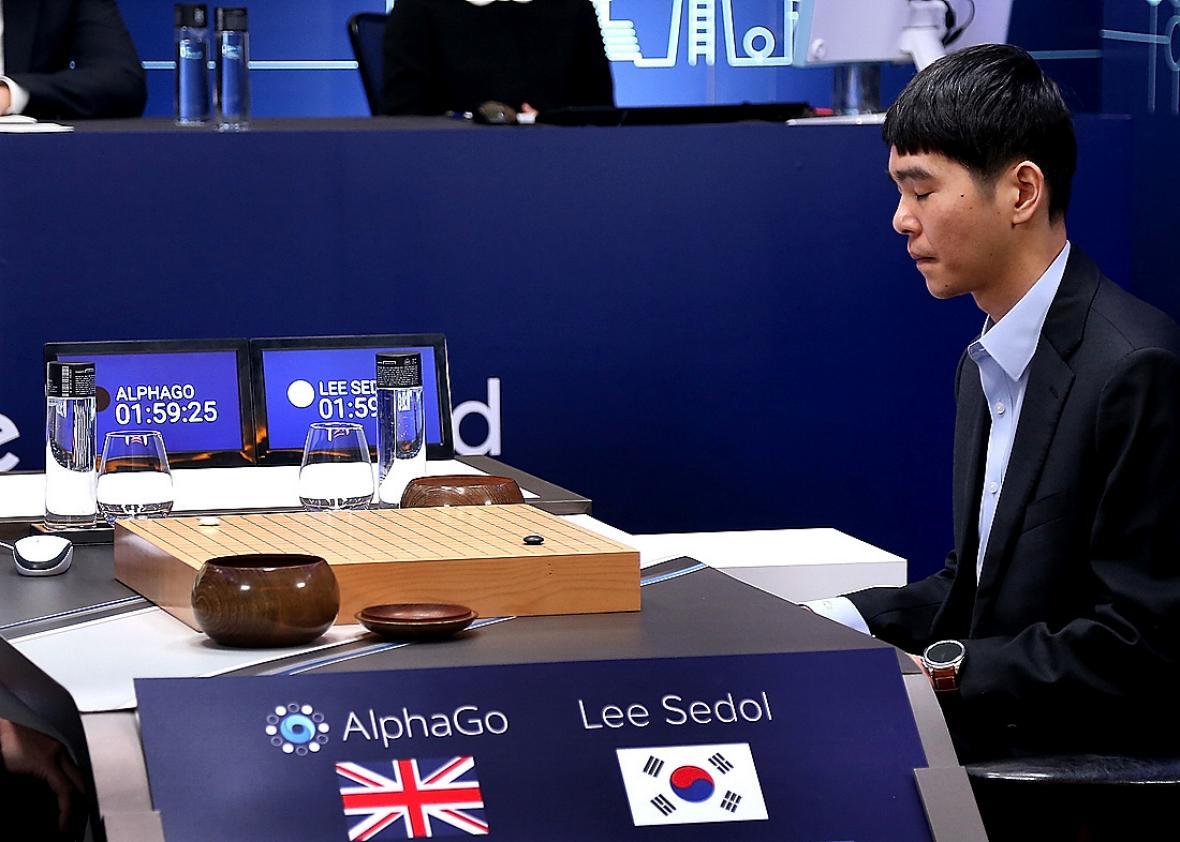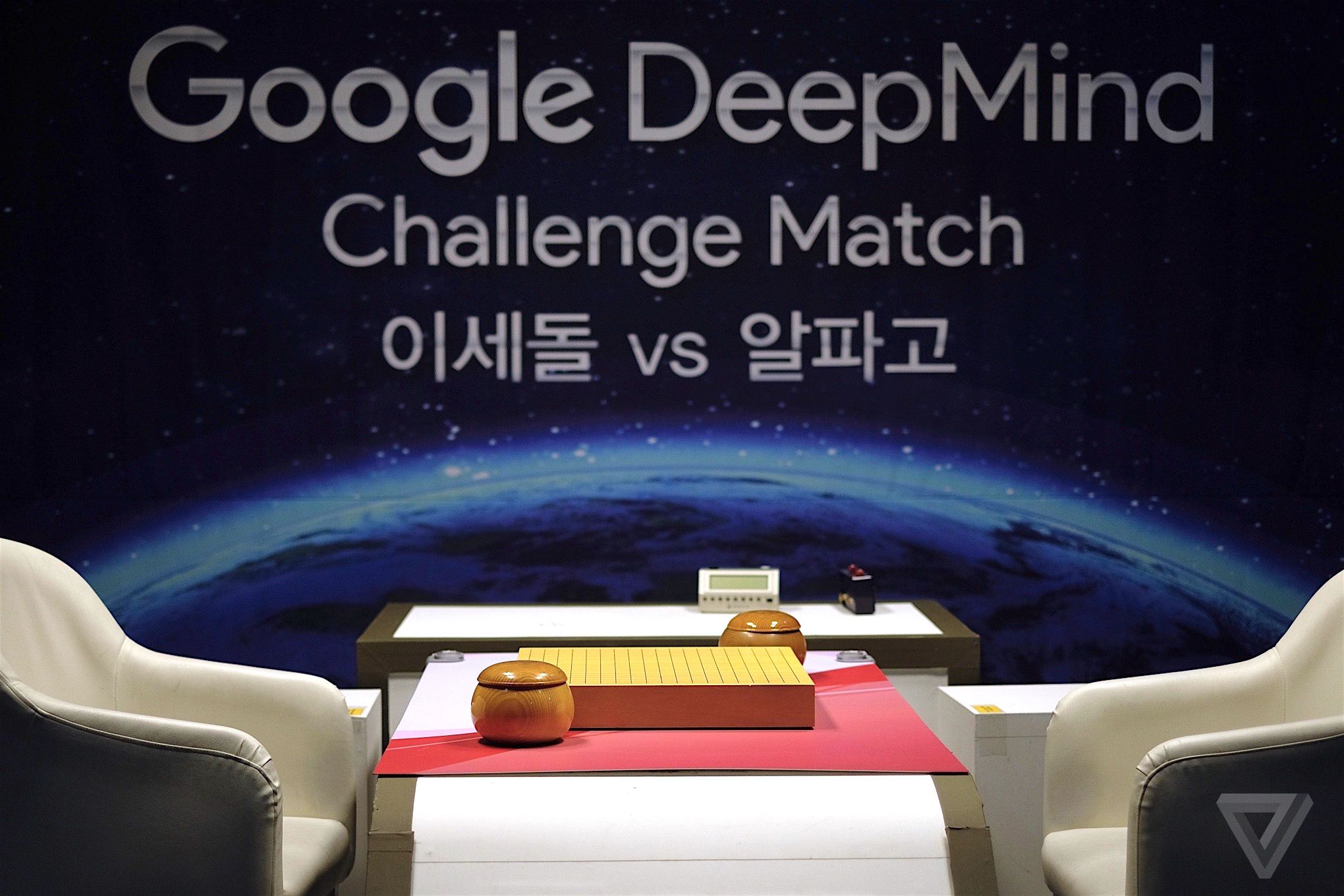March 12, 2016 will go down as a watershed moment in the annals of artificial intelligence (AI) history, for this is when AlphaGo, Google DeepMind’s AI program, handed out the third consecutive defeat to Lee Sedol, in a five-game series pitting human against machine.
Sedol, an 18-time champion and ranked amongst the greatest players of Go, an ancient, extremely complex Chinese game, was left stunned by the loss.

‘I kind of felt powerless. If I look back on the three matches, the first one, even if I were to go back and redo the first match, I think that I would not have been able to win, because I at that time misjudged the capabilities of AlphaGo,’ said Sedol after the third game
AlphaGo’s astonishing imagination and expertise has received praise from all quarters, including Tesla CEO Elon Musk, who is a vocal proponent of AI (as well as a critic). Earlier on March 9, after AlphaGo’s first win, Musk tweeted:
Congrats to DeepMind! Many experts in the field thought AI was 10 years away from achieving this. https://t.co/5gGZZkud3K
— Elon Musk (@elonmusk) March 9, 2016
Musk has in the past created a new AI research company Open AI that is intended to ‘advance digital intelligence in the way that is most likely to benefit humanity as a whole’. The Tesla CEO, however, has also warned about the possible dangers of AI technology becoming a threat to humanity.
You may ask- AI becoming an evil entity like Skynet? Isn’t that sort of stuff exclusively within the domain of scifi movies like the Terminator? Taking Musk’s comments into consideration, we will explain why AlphaGo’s victory is so significant.
AlphaGo is a learning AI
For a long time, humans have attempted to build machines that can not only do more work but also become intelligent- that is, thinking like humans do. Companies such as Google, Apple and Facebook have been investing big into AI research, developing voice recognition software like Siri and face recognition systems used for security.
The reason why AlphaGo’s win matters so much is that the machine is not playing according to a particular program developed by coders, but actually playing in the way it thinks it should. DeepMind built a neural network in AlphaGo- think of a human brain with a network of brain cells, which allows the machine to learn on its own.
Here is a brief lowdown on what ‘Go’ is all about:
An abstract strategy game played on a 19×19 grid. Players take turn to place black and white pieces (stones) with the aim to encircle the maximum territory. The game goes on till one player resign or neither wants to move, after which the captured territory is counted.
Go is not a ‘solved’ game like checkers or connect-four, where the outcome- be it a win, loss or draw can be correctly predicted if there is perfect play by both players. It requires intuitive understanding, not merely brute force computing.
Researchers have estimated that there are approximately 2.08 ×10170 legal positions in Go. In 2016, a team calculated the exact number of positions: 2081681993819799846994786333448627702865224538845305484256394568209
2741961273801537852564845169851964390725991601562812854608
9888314427129715319317557736620397247064840935.
That is an incredibly overwhelming figure!
Now, an AI machine usually works in one of the following two ways (in case of a game)-
- Running as many combinations as possible and choosing the best combination from the lot
- Having knowledge about the game
Google DeepMind’s AlphaGo is an example of the second type, where the AI is trained. But the wonderful thing here is that DeepMind does not only learn the rules and adapt, but also adjusts its playing capabilities by consuming a lot of historical match information (known as the ‘Monte Carlo approach’).
Professional players and commentators have been stunned that the machine has not only defeated a human, but also displayed advanced capabilities in playing the game. As a key analyst remarked: ‘ That move has never been made in the history of Go, and it is brilliant. Professional Go players will be learning and copying that move as a part of the Go canon now.’
What does all this imply? Do we have a machine that can think for itself! Does this bode well for the future? According to experts, we are still far off from creating a truly intelligent machine, since current AI capabilities are more or less at the level of a four-year-old in learning complex tasks. AlphaGo’s remarkable win may mark the beginning of research into ground-breaking AI technology and only time can tell how this is shaped up.
The future ahead?
Meanwhile, people have been left wondering what could possibly be the next level that can be achieved by the AI machine, since it is clear now that it has the ability to learn itself without requiring any sort significant human input.
According to Deepmind co-founder Demis Hassabis, the next move might be playing a multiplayer game.
‘I think for perfect information games, Go is the pinnacle. Certainly there are still other top Go players to play. There are other games — no-limit poker is very difficult, multiplayer has its challenges because it’s an imperfect information game. And then there are obviously all sorts of video games that humans play way better than computers, like StarCraft is another big game in Korea as well.’ said Hassabis, in an interview with The Verge.
Hassabis, however, indicated that their main objective is to use the AI algorithm to solve real-world problems such as climate modelling and complex disease analysis. The transition is certainly going to be a major challenge, given the issues faced by IBM’s Watson. Hassabis stated that Deepmind will initially attempt to test its real-world abilities by tying up with the UK’s health service- the NHS. The process is expected to include ‘the medical diagnosis of images and then maybe longitudinal tracking of vital signs or quantified self over time.’
If the experiment is successful, it will open a plethora of possibilities for applying artificial intelligence to solve greater problems facing humanity. Solving climate change? Avoiding looming threats of war? Finding a cure for cancer? An exciting future awaits ahead!












2 Comments